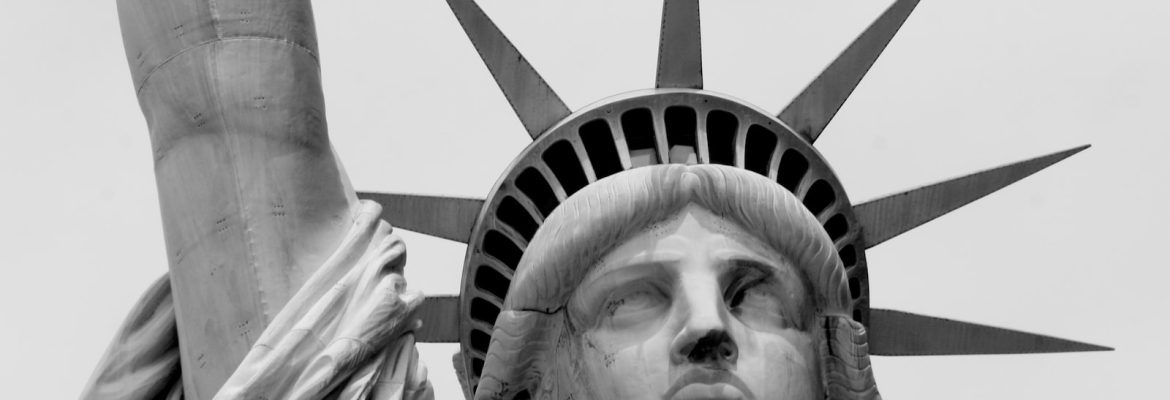
Accessing Children’s Health Insurance Program and Most Medicaid Benefits Will Not Affect Immigration Status
Today, the U.S. Department of Homeland Security (DHS) issued a final rule applicable to noncitizens who receive or wish to apply for benefits provided by the U.S. Department of Health and Human Services (HHS) and States that support low-income families and adults. The rule, which details how DHS will interpret the “public charge” ground of inadmissibility, will help ensure that noncitizens can access health-related benefits and other supplemental government services to which they are entitled by law, without triggering harmful immigration consequences. By codifying in regulation the “totality of the circumstances” approach that is authorized by statute and which has long been utilized by DHS, the rule makes it clear that individual factors, such as a person’s disability or use of benefits alone will not lead to a public charge determination.
The final rule applies to noncitizens requesting admission to the U.S. or applying for lawful permanent residence (a “green card”) from within the U.S. When assessing whether a noncitizen is “likely to become primarily dependent on the government for subsistence,” DHS will not penalize individuals who choose to access the vast majority of health-related benefits and other supplemental government services available to them, including most Medicaid benefits (except for long-term institutionalization – such as residing in nursing home – at government expense) and the Children’s Health Insurance Program (CHIP). DHS will also not consider non-cash benefits provided by other government agencies including food and nutrition assistance such as the Supplemental Nutrition Assistance Program (SNAP); disaster assistance received under the Stafford Act; pandemic assistance; benefits received via a tax credit or deduction; and government pensions or other earned benefits. Receipt of cash-based benefits, such as Supplemental Security Income (SSI), Temporary Assistance for Needy Families (TANF), and other similar programs, will not automatically exclude an individual from admission or green card eligibility, and will instead be considered in a “totality of the circumstances” analysis.
“People who qualify for Medicaid, CHIP, and other health programs should receive the care they need without fear of jeopardizing their immigration status,” said HHS Secretary Xavier Becerra. “As we have experienced with COVID, it’s in the interest of all Americans when we utilize the health care and other services at our disposal to improve public health for everyone.”
“This final rule reinforces a core principle of the Biden-Harris Administration: that healthcare is a right, not a privilege, and no one should be deterred from accessing the care they need out of fear,” said CMS Administrator Chiquita Brooks-LaSure. “Today’s final rule is an important step toward achieving this goal for many Medicaid and CHIP enrollees and their families, and CMS will continue to do everything in our authority to make sure people have access to programs that keep them safe and healthy.”
“Federal civil rights laws require that all people be afforded fair and just decisions when applying for health benefits and other supplemental government services, free of bias, stigma, and discrimination,” said Office for Civil Rights Acting Director Melanie Fontes Rainer. “Today’s rule sets up safeguards to help ensure that people with disabilities and older adults who are not U.S. citizens can access health care without fear. OCR will continue our robust enforcement of civil rights laws to ensure the rights of historically marginalized groups are upheld and defended.”
“People with disabilities and older adults who are not U.S. citizens no longer have to fear that using services that can help them maintain their health, live independently and contribute to their communities will cost them legal residency in our country,” said Alison Barkoff, Acting Administrator of the Administration for Community Living. “The rule explicitly rejects stereotypes that people with disabilities are more likely to become a public charge and is in keeping with the civil rights protections that are the bedrock of American values.”
This final rule is the product of action first taken by the Biden-Harris Administration in 2021 to reverse the previous administration’s 2019 public charge rule, which had the harmful effect of discouraging many immigrants from seeking benefits, such as CHIP and other government services for which they, their children, or their families were eligible, out of fear of jeopardizing their immigration status. This chilling effect extended even to those categories of noncitizens who, by law, are exempt from the public charge ground of inadmissibility, including refugees, asylees, noncitizens applying for or re-registering for temporary protected status (TPS), special immigrant juveniles, T (trafficking victims) and U (crime victims) nonimmigrants, and self-petitioners under the Violence Against Women Act (VAWA). With the publication of today’s final rule, the Biden-Harris Administration is continuing its efforts to reverse these harmful effects and ensure that these programs remain accessible for eligible individuals and families in need.
The final rule does not expand eligibility for Medicaid, CHIP, or other benefits to more people but clarifies DHS policy regarding recipients.
The final rule will be effective on December 23, 2022.
Post is from

Leave Your Comments